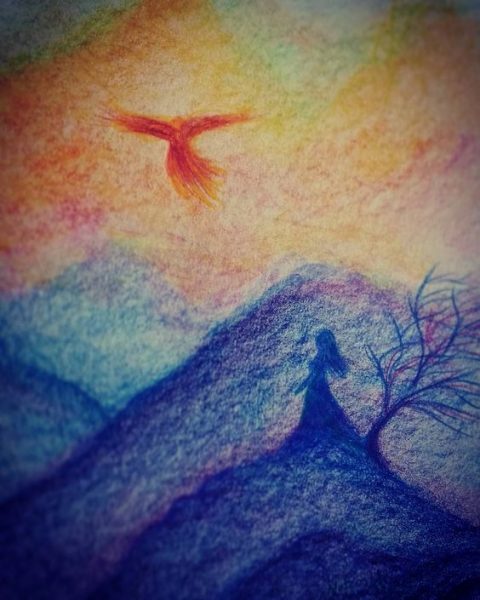By means of a dream, we participate in all the mental activity in its smallest details. Only the cerebral transcription or this activity is often so childish that we normally pay no attention to it.
It is interesting to note that there is nearly always a considerable disparity between what our mental activity is in fact and the way in which we perceive it, and especially the way in which we remain conscious of it.
Dreams are more difficult to interpret, since each person has his own world of dream-imagery peculiar to himself.
Dreams are peculiarly personal… they depend for their make-up almost entirely upon the experiences and idiosyncrasies of the individual… they depend upon everyday occurences and impressions.
It is exceedingly difficult for one man to explain or interpret another’s dream.
Usually I give no “meaning” to dreams, because each one has his own symbolism which has a meaning only for himself.
In order to remember something, you must first of all be conscious of it.
The clumsy transcription has a particular form for each individual; each one makes his own distortion.
Consequently, an excessive generalisation of certain interpretations which may have been quite correct for the person applying them to his own case, merely gives rise to vulgar and foolish superstitions.
The cerebral transcription of the activities of the night is sometimes warped to such an extent that phenomena are perceived as the opposite of what they really are.
In our sleeping brain, the subtle vibrations of the suprasensible domain can affect only a very limited number of cells; the inertia of most of the organic supports of the cerebral phenomenon reduces the number of active elements, impoverishes the mental synthesis and makes it unfit to transcribe the activity of the internal states, except into images which are most often vague and inadequate.
These activities normally leave behind them only a few rare and confused memories.

One can learn much by controlling one’s dreams.
In this domain, the practice of concentration should therefore focus both on the special faculty of memory and on the participation of the consciousness in the activities of the sleeping state.
The same discipline of concentration, which enables man not to remain a stranger to the inner activities of the waking state also provides him with a way to escape from his ignorance of the even richer activities of the various states of sleep.
We should take great intellectual precautions before interpreting a dream, and above all, we should review exhaustively all the subjective explanations before we assign to it the value of an objective reality.
Someone who wishes to recover the memory of a forgotten dream should first of all focus his attention on the vague impressions which the dream may have left behind it and in this way follow its indistinct trace as far as possible. This regular exercise will enable him to go further every day towards the obscure retreat of the subconscient… and thus trace out an easily followed path between these two domains of consciousness.
The absence of memories is very often due to the abruptness of the return to the waking consciousness. (The waking should not be too abrupt…. If possible, do not make any abrupt movements in bed at the time of waking.)
Where there is no consciousness, there can be no memory. Consequently, … we must work to extend the participation of the consciousness to a greater number of activities in the sleeping state.
First you have to get consciousness, afterwards, control… even in the dreaming, you can exercise your conscious will and change the whole course of your dream-experience. And as you become more and more conscious, you will begin to have the same control over your being at night as you have in the day…. In the night the mental and vital, especially the vital, are very active. During the day, they are under check…. In sleep this check is removed and they come out with their natural and free movements.
The procedure to deal with dreams…. Become conscious of your dreams. Observe the relation between them and the happenings of your waking hours…. In sleep some action or other is always going on in your mental or vital or other plane; things happen there and they govern your waking consciousness.
The daily habit of reviewing with interest the various dreams of the night, whose traces will gradually become transformed into precise memories, as well as the habit of noting them down on waking, will be found most helpful…. By these habits, the mental faculties will be led… to exercise on them their attention, their curiosity and power of analysis. A kind of intellectualisation of our dreams will then occur… Dreams will then take on the nature of precise visions and sometimes of revelations, and useful knowledge of a whole important order of things will be gained.
Why do we forget our dreams?
It is not always the same part of your being that dreams and it is not at the same place that you dream. If you were in conscious, direct, continuous communication with all the parts of your being, you would remember all your dreams. But very few parts of the being are in communication. For example, you have a dream in the subtle physical, that is to say, quite close to the physical. Generally, these dreams occur in the early hours of the morning, that is between four and five o’clock, at the end of the sleep. If you do not make a sudden movement when you wake up, if you remain very quiet… and concentrated, you will remember them, for the communication between the subtle physical and the physical is established…. Now, dreams are mostly forgotten because you have a dream while in a certain state and then pass into another. For instance, when you sleep, your body is asleep, your vital is asleep, but your mind is still active. So your mind begins to have dreams, that is, its activity is more or less coordinated, the imagination is very active and you see all kinds of things, take part in extraordinary happenings…. After some time, all that calms down and the mind also begins to doze. The vital that was resting wakes up; it comes out of the body, walks about, goes here and there, does all kinds of things…. The vital is very adventurous…. But this pushes back the whole mental dream very far behind… the vital dream takes its place. But if you wake up suddenly at that moment, you remember it. You must not move brusquely… then you remember.
After a time, the vital having taken a good stroll … goes into repose…. Then, something else wakes up. Let us suppose that it is the subtle physical that goes for a walk. It starts moving and begins wandering… But this has pushed away far to the back of the consciousness all the stories of the vital. They are forgotten and so you cannot recollect your dreams. But if at the time of waking up… you make yourself like a tranquil mirror within and concentrate there. You catch just a tiny end of the tail of your dream… and start pulling gently, without stirring in the least… then first one part comes, a little later another, the last comes up first… and suddenly the whole dream appears…. Once that dream is settled, you continue not to stir, you try to go further in, and suddenly you catch the tail of something else… it is another dream. You follow the same process…. Then you begin to penetrate still more deeply into yourself, as though you were going in very far, very far… you have a feeling, a sensation… take particular care not even to move your head on the pillow, remain absolutely still and let the dream return.

Some people do not have a passage between one state and another…. It is like a precipice across which one has to extend the consciousness… very few people want to and know how to do it…. But there are as many different kinds of nights and sleep as there are different days and activities.
How is it that in dreams one meets and knows people whom one meets and knows afterwards in the outer world?
It is because of the affinities that draw certain people together, affinities in the mental or the vital world. People often meet in these planes before they meet upon earth. They may join there, speak to each other and have all the relations you can have upon earth. Some know of these relationships, some do not know. Some, as are indeed most, are unconscious of the inner being and the inner intercourse, and yet it will happen that, when they meet the new face in the outer world, they find it somehow very familiar, quite well-known.
When one sees oneself dead in a dream, what does it signify?
It depends on the context. It can mean that one has made enough progress to get rid totally of an old way of being which has no longer any reason for existing…. I think it much more likely that it is a fragment of being which has stopped being useful and so disappears….
Sometimes when one is asleep, he knows that he is asleep but he can’t open his eyes. Why?
This happens when one has gone out of his body…. Sometimes the eyes are a little open and one can also see things….
And one can’t move! It means that only a fragment of the consciousness has come back… you must not shake yourself, because you risk losing a bit of yourself. You must remain quite still and concentrate slowly, slowly on your body….
THE MOTHER



About Savitri | B1C3-11 Towards Unity with God (pp.31-33)